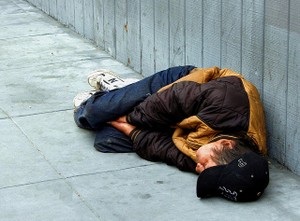Alcohol Policies and Laws to Reduce Alcohol-Related Harms – Which Programs Work and Which Programs Don’t
At the societal level, the social and economic costs associated with alcohol use and abuse are staggering, and because they run so high, government plays a necessary role in enacting regulations to minimize these costs. Ideally, these regulations walk a fine line between reducing alcohol related harms while still respecting individual choice and the rights of industry to make money and create jobs.
Unfortunately, though a great deal is known about what works best at the macro level to reduce the harms of alcohol abuse, what gets put into play at the municipal, state and even federal levels doesn’t always make best use of this knowledge base.
In some cases, a great deal of taxpayer money gets spent on programs that sound very impressive but are proven to have little impact, and in some more depressing instances, legislators put the profit goals of the alcohol industry over the health protection of the citizenry.
Alcohol abuse issues affect many 10s of millions of families very directly, but the indirect costs of alcohol abuse affect every American. This year, the CDC released an updated estimate of the true economic costs of excessive alcohol use, numbering it $223.5 billion, which equates to more than $700 for every man woman and child in the country.1
So no matter who you are and no matter how much you do or don’t drink, you should care about alcohol policies – if for no other reason than to increase the amount of money in your wallet in any given month.
And so no matter where you live - as another election season nears - pay attention to the alcohol policies proposed by any candidates under your consideration and see which candidates have a real understanding of effective alcohol policies and which only propose those programs that sound nice, but that just don’t work very well.
Reducing Harmful Drinking – Which Policies Work and Which Policies Don’t
Researchers at The World Health Organization (WHO) did a review of research literature to determine which types of alcohol polices worked to reduce harmful drinking, which types maybe worked (but lacked conclusive evidence proving their effectiveness) and which types of polices most likely did not work well.
Alcohol Policies That Very Likely Work (Backed by Convincing Research Evidence)
- Raising alcohol taxes
- Maintaining a government monopoly on the sale of all alcohol
- Reducing the allowable number of alcohol sales outlets in any given area (reduced density)
- Reducing the hours of sale in any given day and reducing the days of sale per week
- Raising the minimum drinking age
- Reducing the maximum allowable blood alcohol content for driving (such as having no allowable BAC for new drivers)
- Increasing random BAC checks
- Providing brief interventions to people with possible alcohol use disorders (such as in ERs or with primary care doctors)
- Increasing the availability of alcoholism treatment
Policies That Likely Work (Backed by Moderate Evidence)
- Enforcing a minimum price for alcohol (such as a minimum price per gram of alcohol) so that there is no very cheap option for intoxication
- Restricting the amount of alcohol related advertising and marketing
- Working to increase the enforcement of polices which prohibit alcohol service to underage and intoxicated persons
Policies That May Work (Backed by Some Limited Evidence)
- Suspending driver’s licenses for alcohol infractions
- Mandating alcohol ignition locks
- Enacting community or workplace alcohol programs
Alcohol Polices That Don’t Reduce Harmful Drinking
Alcohol Polices That Very Likely Don’t Work (Backed by Convincing Evidence)
- School alcohol and substance abuse education programs (In one review, only 6 of 59 high quality high school substance abuse education programs were able to demonstrate any effectiveness)
Alcohol Policies That Probably Don’t Work (Backed by Some Evidence)
- Designated driver programs
- Training alcohol servers to enforce alcohol laws
- Community education campaigns
- Warning labels on alcohol product2
References
Post a comment 0
Copyright Notice
We welcome republishing of our content on condition that you credit Choose Help and the respective authors. This article is licensed under a Creative Commons License.
Helpful Reading:
-
Alcohol Addiction - the Straight Facts
The difference between alcohol abuse and alcohol addiction (alcoholism), what puts you at risk of becoming an alcoholic and what to do once you’ve crossed that invisible line to addiction.
Read the complete article -
 An Alcoholism Progression Timeline
An Alcoholism Progression Timeline
Here are 2 facts about alcoholism: It tends to get worse over time (it is progressive) and most people experience a fairly similar progression of symptoms and consequences. Here is a timeline which charts the progressive experiences of alcoholism through the early, middle and late stages. If you have a drinking problem, find out where you fall on the timeline and consider what’s coming in the future.
Read the complete article -
Alcohol Abuse and Stomach Pain? It's Probably Gastritis
Heavy drinking can cause acute or chronic stomach pain.
Read the complete article

 John Lee
John Lee

